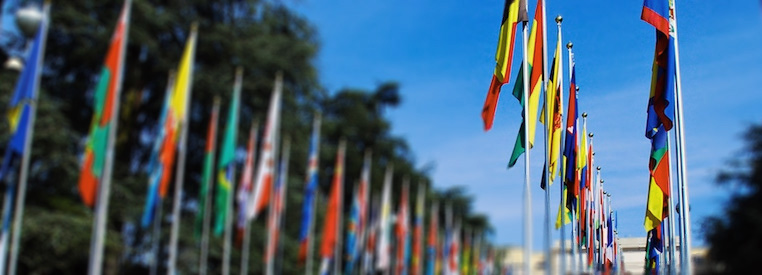1 April 2009
The International Commission of Jurists (ICJ) welcomed the decision of President Obama’s administration to seek a seat on the UN Human Rights Council, announced on 31 March 2009.
“A reversal of the Bush administration’s decision to disengage from the Council came at the right time, as the Council continues to grapple with some of the most pressing human rights situations and concerns,” said Lukas Machon, ICJ Representative to the United Nations.
It will be a primary responsibility of the future Council’s members to close the growing gaps in ensuring the accountability of perpetrators of gross human rights violations and ensure consistency in addressing all grave human rights situations. Tackling a pervasive discrimination and bolstering human rights standards will also be essential.
At the recently concluded 10th session, the Council failed to enhance the protection of civilians in times of de facto and de jure emergencies, including in armed conflicts. “The Council must not continue to overlook the gross violations of human rights in countries like Sri Lanka, Zimbabwe, Colombia, Afghanistan and Tibet nor pursue endless struggles over what form of human rights assistance would ameliorate crisis situations, such as in the Democratic Republic of the Congo and Somalia,” added L. Machon.
The Council’s reputation may also be shaken by further delays instead of expeditious work by the fact-finding commission tasked at the 9th special session with assessing and making recommendations on the volatile human rights and humanitarian situation in the Occupied Palestinian Territories. However, the Council should ensure that the fact-finding investigation addresses the violations of international human rights and international humanitarian law by all parties to the recent conflict.
The future Council members will also need to build on the positive developments made during the last session of the Council, in particular on human rights while countering terrorism. These developments include the agreements on the right to a remedy and reparations for victims of human rights abuses and increasing the accountability of intelligence services for operations in counter-terrorism.
The US engagement with the international human rights mechanisms should also extend to systematic cooperation with the Special Procedures of the Council, in particular when addressing the situation in Guantánamo Bay Detention Centre. The ICJ believes that the analysis of – and compliance with – the relevant Special Procedures’ recommendations would facilitate a review process of the US counter-terrorism laws and policies, as instigated by President Obama’s executive orders, including on the future of Guantánamo Bay, treatment of detainees and ending the practice of secret detention.
It is essential that all States build on the current momentum and articulate measures to remedy damage done in counter-terrorism. In this regard, the ICJ urges the development of a separate UN action plan to renew Governments` commitment to human rights and rule of law principles and assess the cooperation of relevant human rights mechanisms, including through a discussion of these issues at a special session of the Council.
Reaching these objectives requires a vision and the commitment of States with proven human rights records. At present there are only three candidates – the United States, Belgium and Norway – for three vacant seats for the Western Group in the Council’s May 15 elections. “The ICJ calls on all States to prevent clean-slates and allow for competition and membership of countries with the best human rights record,” concluded L. Machon.
